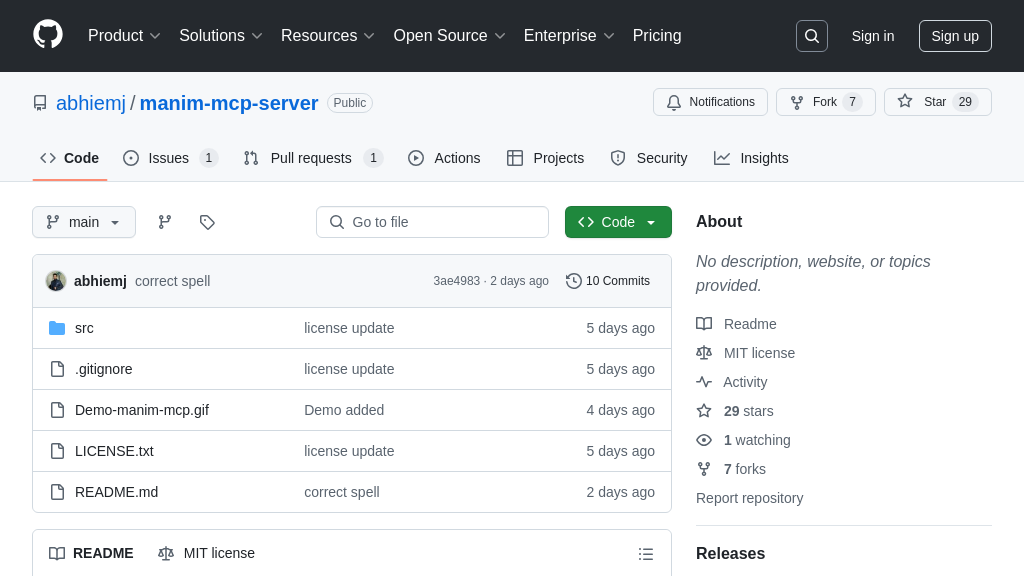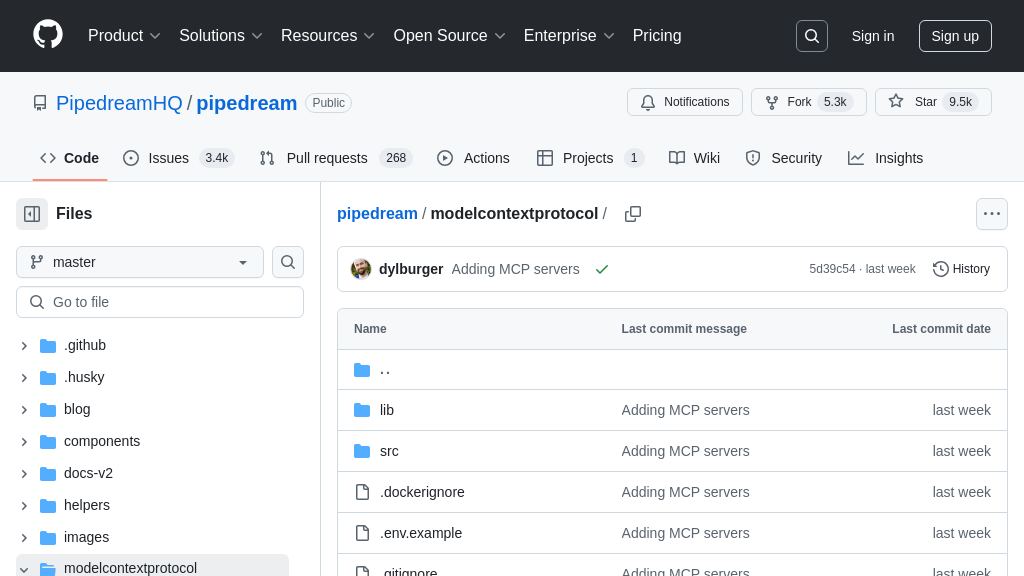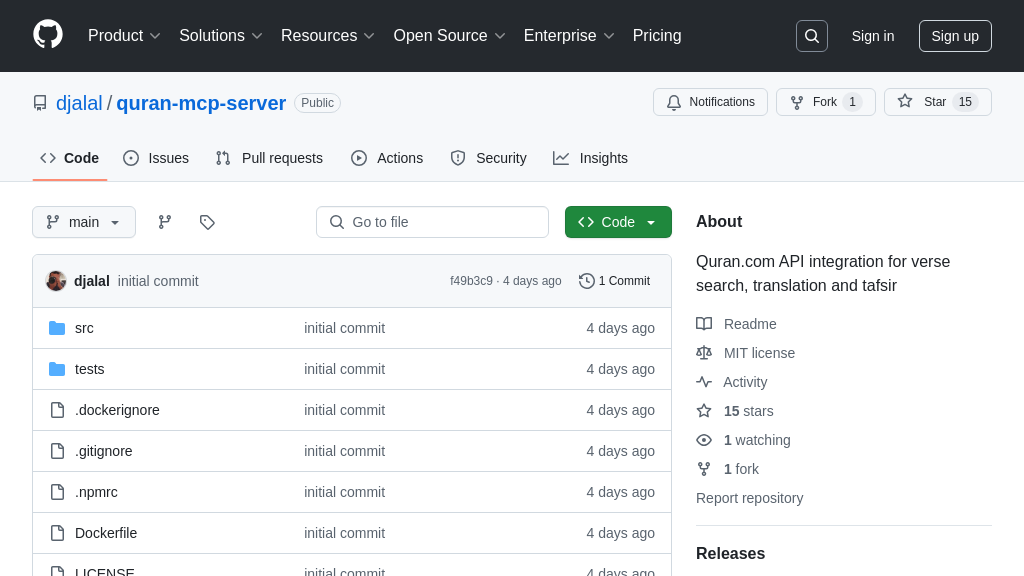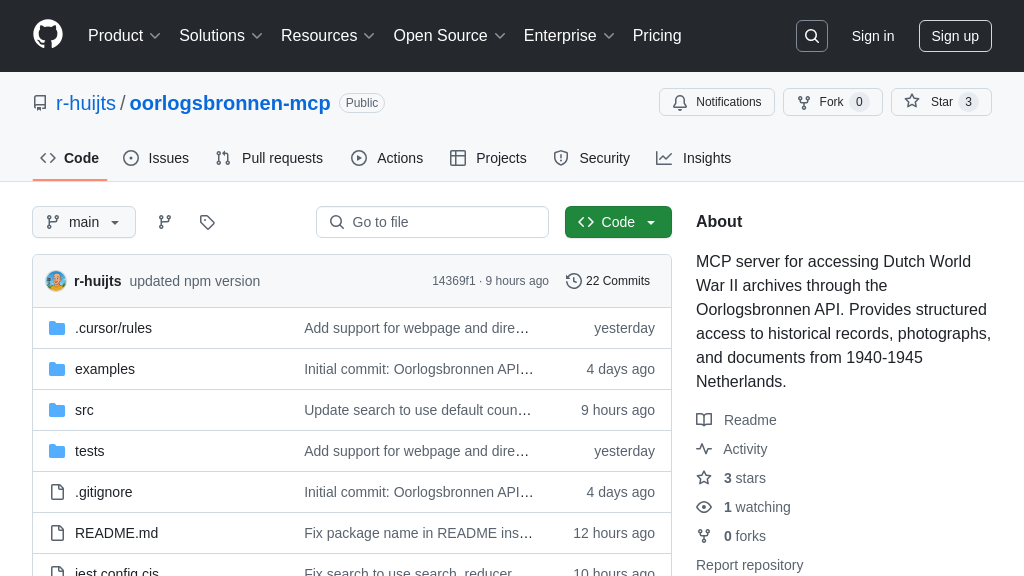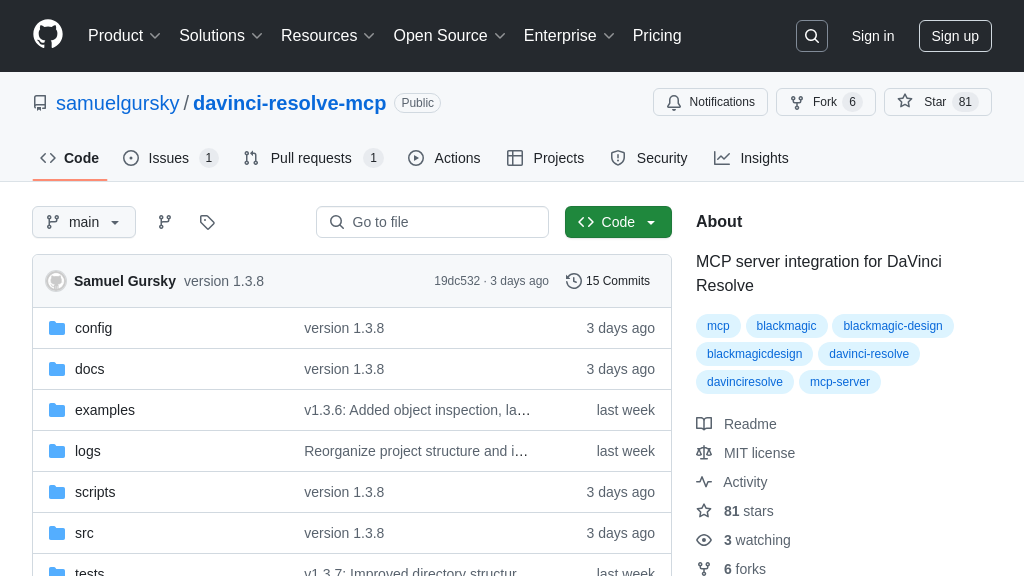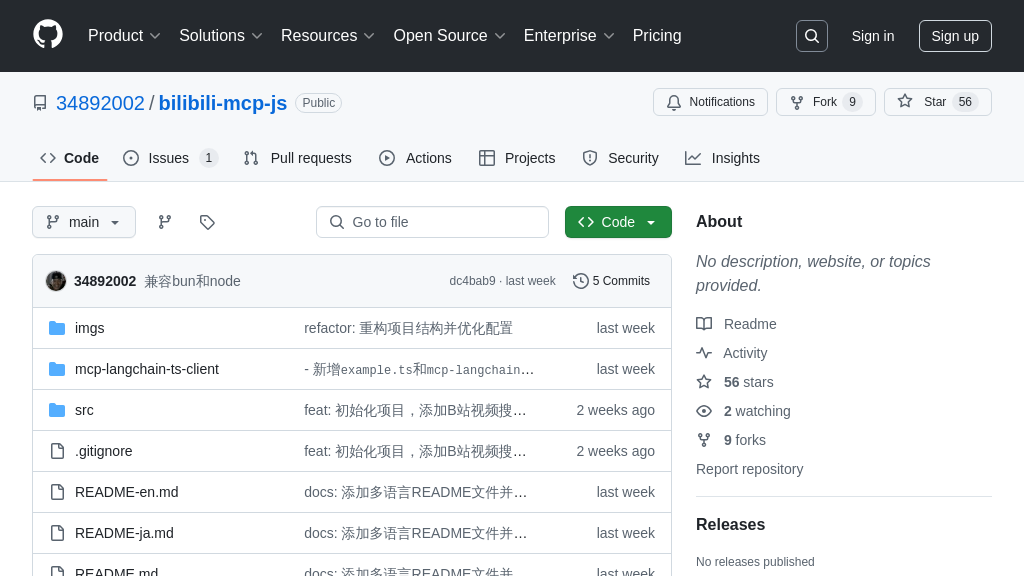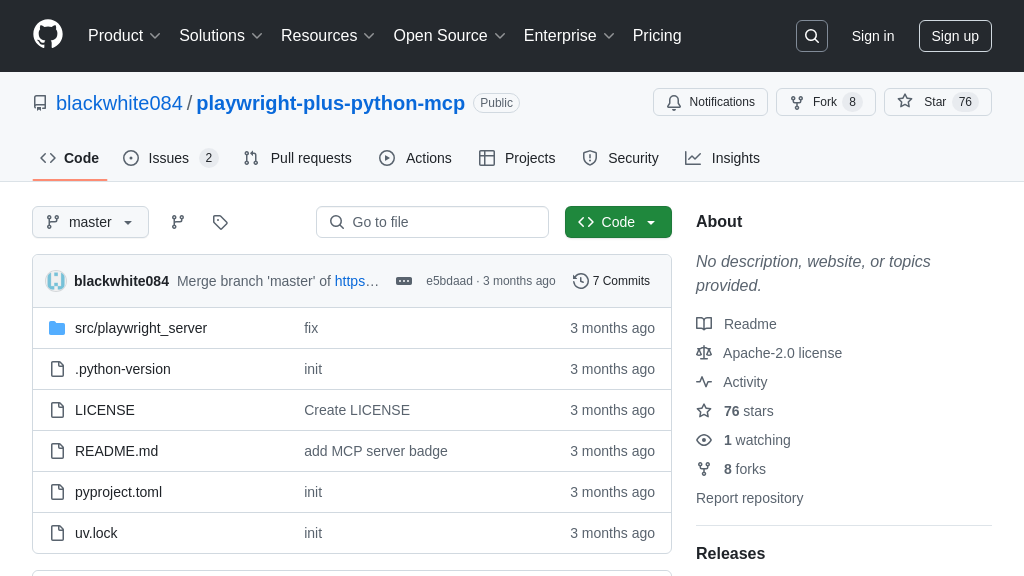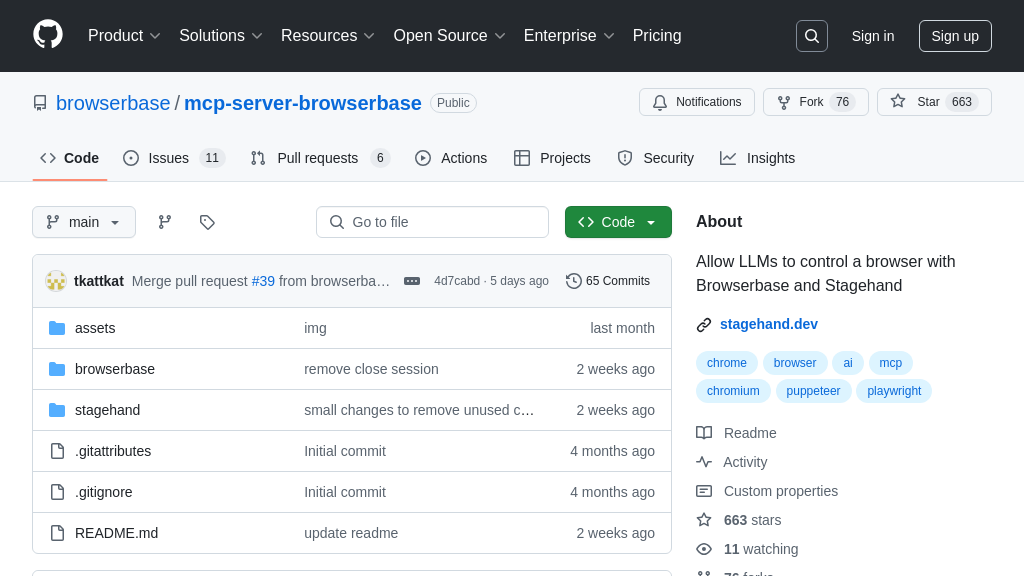firstcycling-mcp
FirstCycling MCP Server: Access professional cycling data for AI models via MCP. Get cyclist info, race results, and historical data.
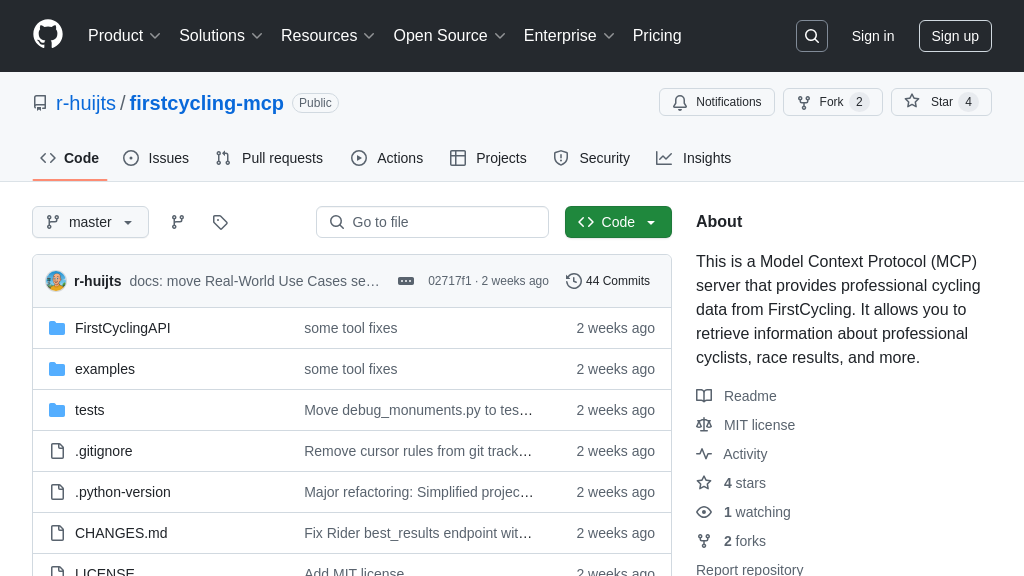
firstcycling-mcp Solution Overview
FirstCycling MCP Server is a valuable resource within the MCP ecosystem, providing AI models with comprehensive professional cycling data. As an MCP server, it offers tools to retrieve detailed information on cyclists, race results, historical data, and more. This allows developers to build AI applications capable of in-depth rider analysis, race research, and generating cycling-related content.
By integrating this server, AI models can access and process data related to rider performance, career progression, and race statistics, enabling use cases like performance tracking, historical comparisons, and sports journalism. The server leverages web scraping techniques to access the FirstCycling API, ensuring a rich and up-to-date data source. Seamless integration with Claude for Desktop is facilitated through a simple configuration update, while development mode allows for easy testing with the MCP Inspector. This empowers developers to create intelligent cycling applications with ease.
firstcycling-mcp Key Capabilities
Rider Data Retrieval
The FirstCycling MCP server provides a tool to retrieve comprehensive information about professional cyclists. This includes biographical data, team affiliations, and a detailed race history. The tool allows AI models to access structured data about individual riders, enabling more informed and context-aware interactions. For example, an AI model could use this tool to answer questions about a rider's age, nationality, or current team. This feature is valuable for AI applications focused on sports analytics, cycling journalism, or interactive fan engagement. The underlying implementation involves web scraping techniques to extract data from the FirstCycling website and present it in a structured format accessible via the MCP protocol.
Use Case: An AI-powered cycling news aggregator uses this tool to automatically enrich news articles with rider profiles, providing readers with instant access to background information on the athletes mentioned.
Race Result Aggregation
This feature allows AI models to retrieve race results and details from FirstCycling. It provides access to data on past races, including winners, stage results, and overall standings. This is crucial for AI applications that need to analyze race performance, identify trends, or provide real-time updates during events. For instance, an AI model could use this tool to determine the winner of a specific race or to compare the performance of different riders across multiple races. The data is obtained through web scraping and is structured to facilitate easy parsing and analysis by AI models.
Use Case: A sports analytics platform uses this tool to build a model that predicts race outcomes based on historical performance data, weather conditions, and rider profiles.
Historical Cycling Data Exploration
The FirstCycling MCP server enables AI models to explore historical cycling data, including past races, rider performances, and team compositions. This feature is essential for applications that require a deep understanding of the sport's history, such as creating documentaries, analyzing long-term trends, or developing educational resources. An AI model could use this tool to research the history of a particular race or to track the evolution of cycling teams over time. The data is sourced from the FirstCycling website and is organized to allow for efficient querying and analysis.
Use Case: A cycling history website uses this tool to create interactive timelines of major races and rider careers, allowing users to explore the sport's rich history in a visually engaging way.
Integration Advantages
The FirstCycling MCP server offers a standardized interface for accessing cycling data, simplifying integration with AI models and applications. By adhering to the MCP protocol, it ensures interoperability with other MCP-compliant tools and services. This reduces the complexity of data acquisition and allows developers to focus on building intelligent applications that leverage cycling data. The server's design promotes modularity and scalability, making it easy to extend its functionality and adapt to changing data needs. Furthermore, the use of web scraping techniques ensures that the data is always up-to-date, providing AI models with access to the latest information.
